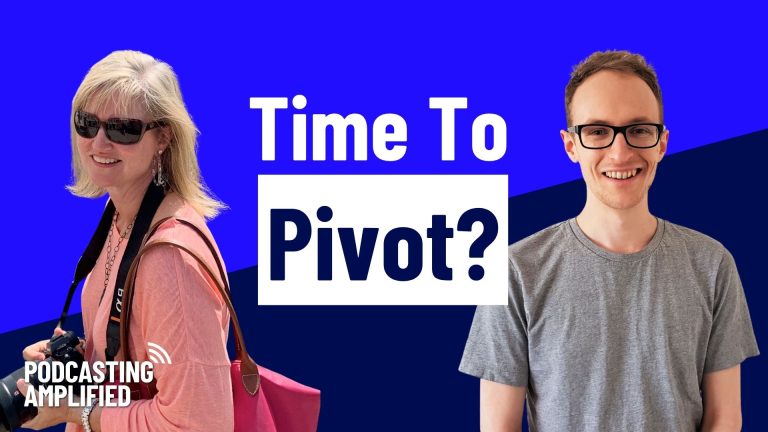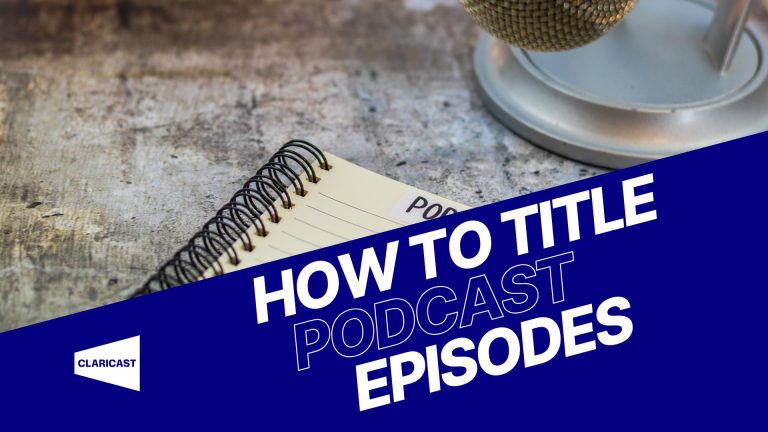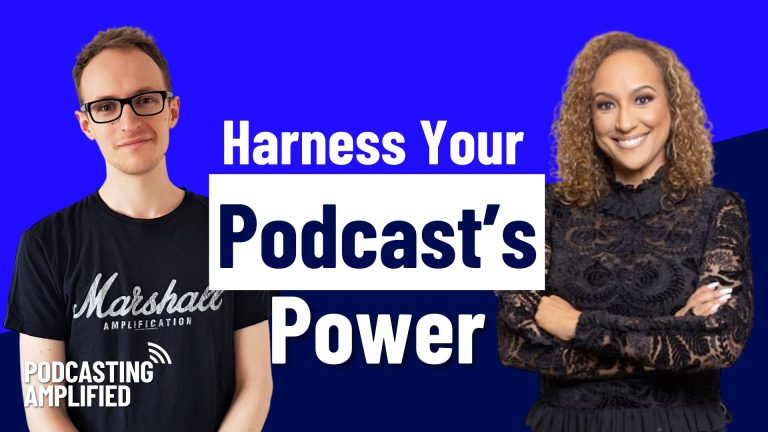Show notes are an essential element of your podcast. Well-written show notes have the power to turn browsers into listeners and encourage your listeners to take the next step. But here’s the catch – it takes time and practice to craft quality show notes. Introducing, AI podcast show notes.
Generative AI tools like ChatGPT have become a powerful tool in the arsenal of many creatives. And podcasters are no exception.
Many podcasting software services (e.g. Descript, Riverside) have introduced some form of AI podcast show notes writing tool. These offer to write your show notes for you, based on the content of your episodes.
But are these AI-generated show notes worth using? Do they save time? Are they any good? Let’s take a look.
Podcast Show Notes Unpacked
First, let’s break down the five elements that podcast show notes should include –
- An opening sentence or two that hooks the reader in – i.e. an intriguing question, an open loop or a story.
- An enticing summary of the episode (and guest, if relevant), without giving the whole story away. This should focus on a particular ‘win’ that the episode focuses on.
- A bulleted list of the key wins/questions answered in the episode (again, without giving away the answers). Optional time stamps.
- Your call to action (the next step you want the listener to take).
- Links to anything mentioned in the episode, your guest’s website, links to listen to the episode etc.
Let’s take a look at what this looks like in practice.
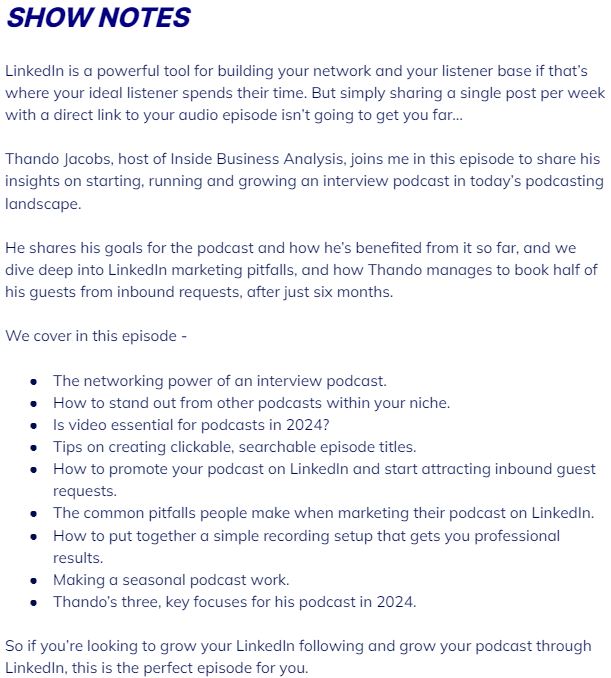
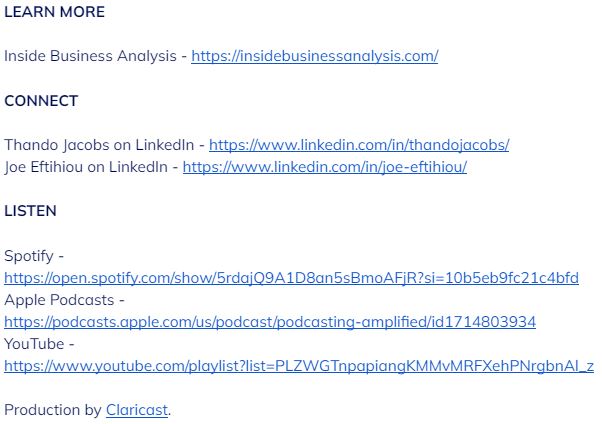
Now let’s take a look at an AI attempt at writing show notes for the same episode –
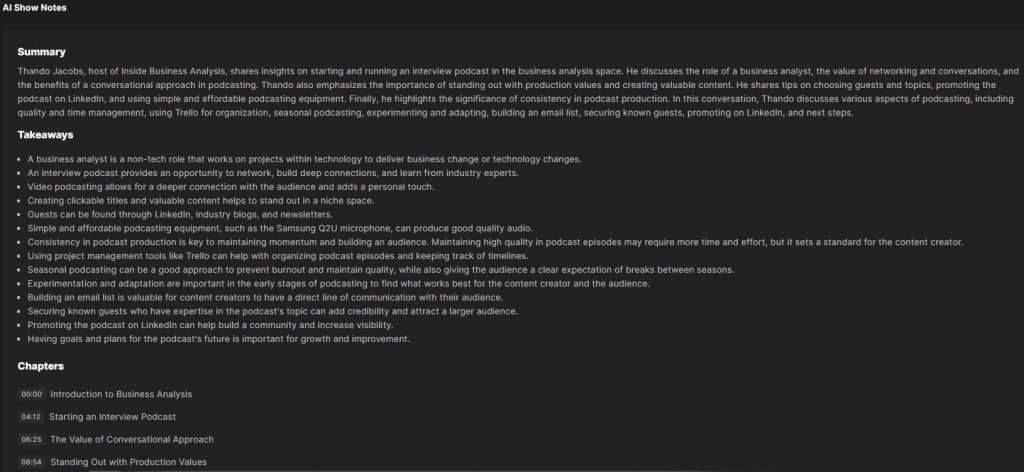
What do you think of the AI’s attempt?
AI VS. HUMAN SHOW NOTES
Let’s revisit the five elements that podcast show notes should include, and whether or not the AI nails them or not.
Opening Hook
Ultimately, the point of podcast show notes is to get the person to listen, or at least click on the episode and read more. And the way to do this is by drawing them in with some kind of hook or focus (as mentioned above).
This ‘hook’ is missing from the AI show notes example. They open with the name of the guest and their podcast, which to someone who doesn’t know them, won’t give them a reason to listen.
Enticing, Focused Summary
A solid summary is provided, but it’s not particularly focused. Even if you’re running an interview podcast, there should be a running theme you can focus your show notes and your title around. This helps for SEO purposes too.

Bullet Points
Regarding the bullet points, your bullet points should come from a question perspective, not an answer perspective. A list of questions that are answered in the episode that your ideal listener will be excited to get the answers to.

The AI show notes give away the answers in this case. This doesn’t give the browser a reason to listen. What they do do well is include timestamps. Of course, creating these after editing is important, so the timestamps remain accurate.
Call To Action & Links
The CTA and links aren’t included. The AI unfortunately isn’t able to pick out links from the episode.
THE VERDICT
At this time, AI podcast show notes are not optimal for growing your podcast. Unless they’ve been edited to suit.
I’m not saying they won’t get there – it’s still early days. Generative AI writing tools that accept prompts (like ChatGPT) are potentially easier to tailor to your needs. You would still have to feed it with a summary of the episode though, as ChatGPT can’t listen through your episode.
And of course, you could use the AI podcast show notes to get you started. You’d then need to amend them to include the missing elements – although, at this point, you might not be saving any time.
Watch this space for an update – let’s see how these tools advance over the next year!


